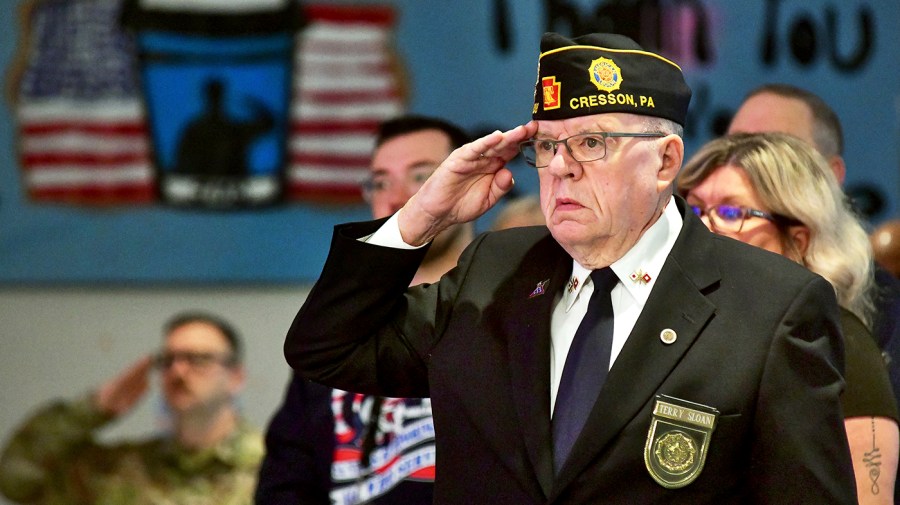
The House on Monday passed a massive bill that will fund a range of veterans care services and increase opportunities for retired service members in the workforce and education.
The Senator Elizabeth Dole 21st Century Veterans Healthcare and Benefits Improvement Act, known as the Dole Act, passed on a bipartisan 389-9 vote.
The bill is a win for Republicans who have pointed to issues with the Department of Veterans Affairs (VA) and have called to allow veterans to access more care at home.
Rep. Mike Bost (R-Ill.), chair of the House Veterans Affairs Committee, said a big provision is that the VA will no longer “get to decide where veterans should get their health care.
“The Dole Act would rightfully make sure that a VA bureaucracy cannot veto a doctor’s medical decisions,” he said on the House floor before the vote. “Two weeks ago, the American people voted us a mandate to fix problems they talked about at their kitchen tables that affect their families and communities every single day. The Dole Act is a foundation for that work to begin with the veterans community.”
Rep. Jack Bergman (R-Mich.) said it was important to “ensure that no veteran will have to worry about losing his VA benefits for their family when choosing to spend their last days in the comfort of their home.
The bill will next head to the Senate, but it’s unclear if there is support for the legislation in the Democratic-controlled chamber.
Rep. Mark Takano (D-Calif.), ranking member of the Veterans Affairs Committee, said the Dole Act will “connect veterans caregivers to respite care and other support services that help them care for veterans at home,” calling it “an investment in care for millions of veterans and current service members.”
But he also said it was an “uphill battle” to get the bill passed, accusing the GOP of “outsourcing more VA care to for profit health care providers” in the original bill before a compromise was reached in the past week to preserve VA services.
“We want VA to remain a strong provider of care, instead of diminishing it to nothing more than an insurance company where profits are prioritized over outcomes for veterans,” Takano said, adding he supported the bill but was upset about a few provisions.
The Dole Act, named for the former Republican senator from North Carolina, is a major priority for veterans advocacy groups who point to the bill’s wide range of funding priorities to improve care through the VA.
The legislation would tackle vexing problems for veterans like housing, offering Native American veterans home projects and purchases on tribal land and authorizing the VA to provide grants for transitional housing for all veterans.
It also bolsters mental health care for veterans, increases coverage for veterans seeking alternatives to nursing home care, funds at-home services, covers ambulance rides to the VA and provides more options for veterans who need a caretaker, among a long list of other health services.
And the bill includes efforts to increase education through expanding scholarship access and modernizing educational assistance tools.
Elizabeth Dole Foundation CEO Steve Schwab said his organization has been working “for more than a year to pass this transformative legislation for the millions of veterans, caregivers, survivors, and families we serve.”
Schwab said in a statement he “will push for swift passage in the Senate to follow so that we can get this to the President’s desk to sign. Our veterans, caregivers, and survivors are depending on us to get this over the finish line.”
Veterans of Foreign Wars (VFW) also supported the Dole Act this month.
“This IS a good piece of bipartisan-negotiated legislation that had input from numerous organizations representing veterans, caregivers, and survivors from around the country,” VFW wrote in a statement.

